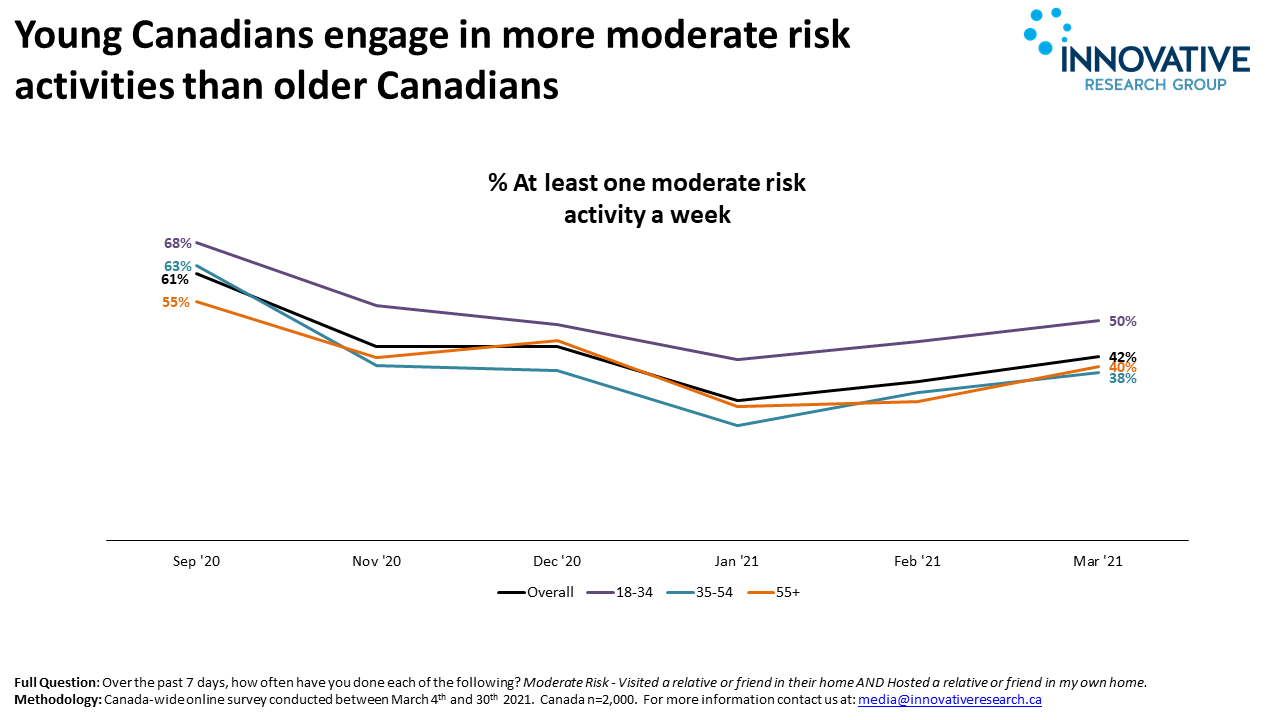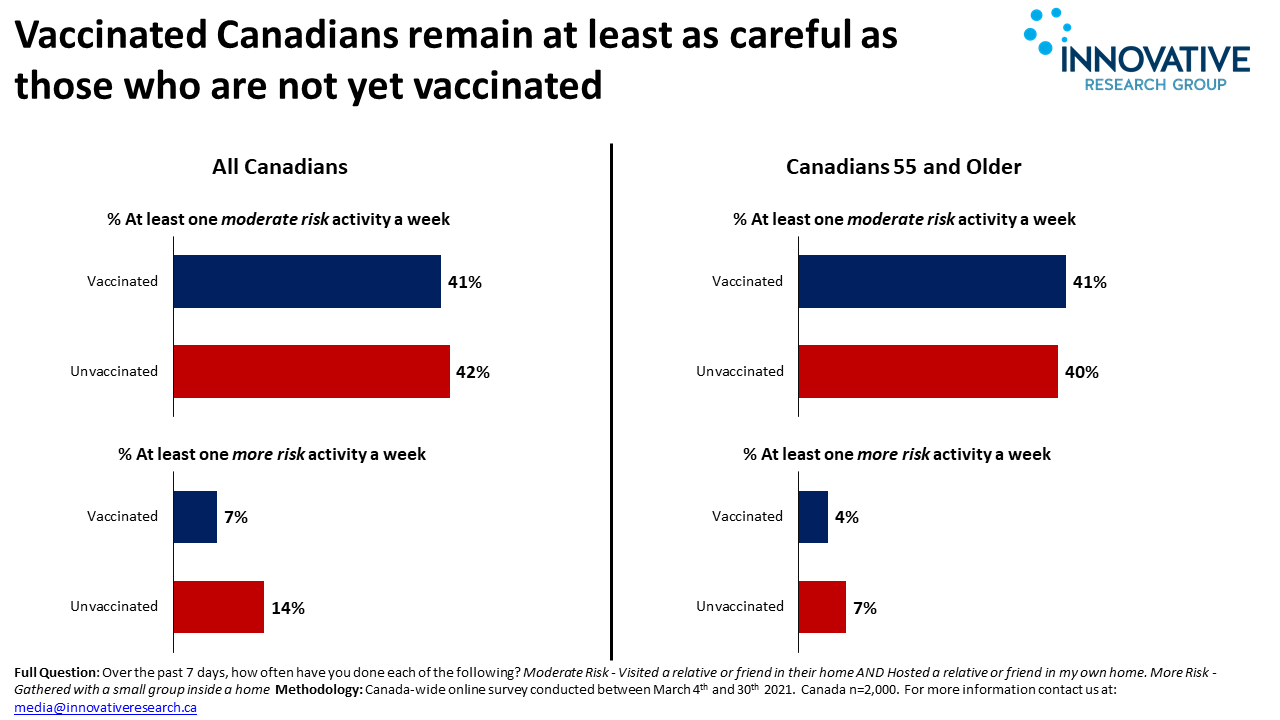
A new online poll by INNOVATIVE of 3,807 Canadians shows a 9-point increase in behaviours with modest risk and a six-point increase in moderate risk behaviour. This is not due to growing fatigue as fatigue eased slightly this month. It may be due to declining fear of COVID-19.
When it comes to behaviour, the good news in March is that Canadians are not increasing the most risk behaviours. Attending large gatherings or gathering in small groups inside homes are stable month over month. However, there is a marginal increase in hosting friends or relatives at home (up 3 points) and visiting others in their homes (up 4 points), more outdoor meetings with friends and family (up 6 points), and more shopping outside food and pharmacy (up 8 points).
BC Premier John Horgan has pointed to the behaviours of people under 40 as a key problem, and he has a point. While on average 13% of Canadians gathered with a small group inside a home, 24% of people under 35 years old report this activity. Similarly, while on average 42% of Canadians visited with friends and family in a home, 50% of Canadians under 35 report that activity. So while it is not just younger people engaging in those moderate risk activities, younger people are more likely to do so.

Protective behaviours are stable this month. While Canadians are going out more, they are taking the same precautions they did earlier.
The increase in risky behaviours does not appear to be due to increased fatigue. Our tracking shows agreement with our fatigue indicator is actually down 3-points while disagree is up 3-points.
The increase in risky behaviour is also not due to vaccinations. This is not a case of the vaccinated at play while the rest of the population stays at home. Vaccinated people show similar behaviours to other people of the same age.

Despite the increase in new variants of COVID-19 in Canada, fear continues to slip. Strong agreement with the statement “I am worried that if we don’t take special precautions COVID-19 could come back and put more lives at risk” is down 4 points from February and down 10 points from early January.
Overall, despite the spread of more infectious variants of COVID-19 and increasing cases in many parts of Canada, Canadians are engaging in more risky behaviours. Young people are more likely to do risky things, but many older people due as well.
To learn more and to read the full report click here.


































